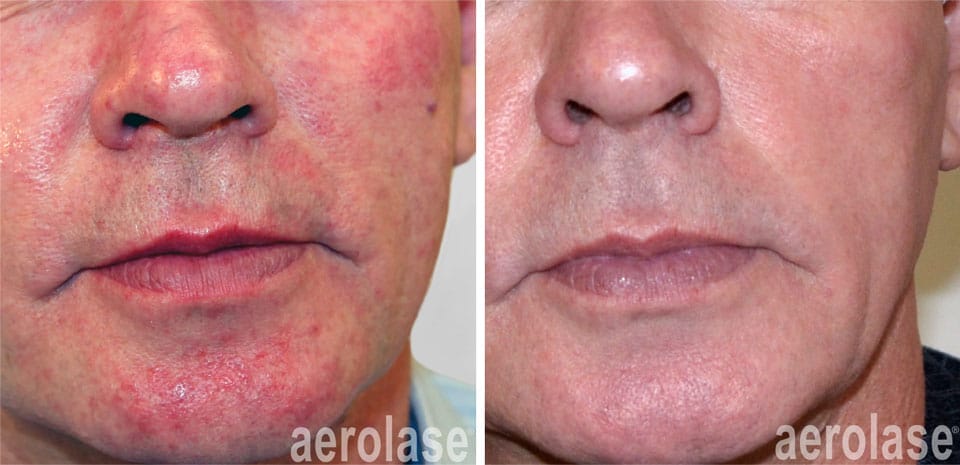
Rosacea is a common chronic skin condition that primarily affects the face, resulting in redness, visible blood vessels, and in some cases, bumps and pimples. While there is no cure for rosacea, understanding its causes, triggers, symptoms, and available treatment for rosacea options can help individuals manage and alleviate its effects.
What Causes Rosacea
The exact cause of rosacea is still unknown, but several factors are believed to contribute to its development. These include genetic predisposition, abnormalities in facial blood vessels, immune system reactions, and the presence of certain bacteria. External triggers such as sun exposure, hot weather, spicy foods, alcohol, stress, and certain medications can also exacerbate rosacea symptoms.
What Are The Symptoms
Rosacea primarily affects the central part of the face, including the cheeks, nose, forehead, and chin. The most common symptoms of rosacea include:
Diagnosis
A Physician can typically diagnose rosacea through a physical examination of the affected areas and a discussion of symptoms. In some cases, additional tests may be recommended to rule out other skin conditions that may have similar symptoms. Early diagnosis is crucial to start appropriate treatment and minimize the progression of the condition.
Treatment for Rosacea Options
While there is no cure for rosacea, various treatment options can effectively manage its symptoms. These include:
The Following Options for Melasma Treatment Options Are
- Aerolase Neo Elite (Most Effective Laser Option)
- Lutronic LaseMD
It’s important to consult with a Physician to determine the most suitable treatment approach based on individual symptoms and severity. They can provide personalized guidance and monitor progress over time.
While managing rosacea requires ongoing care, with proper treatment and self-care, individuals can significantly improve their symptoms and quality of life. Remember, everyone’s experience with rosacea is unique, and what works for one person may not work for another. Patience and persistence are key in finding the most effective treatment plan for managing rosacea.

